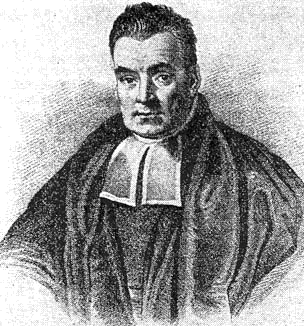Thomas Bayes
angielski matematyk
Thomas Bayes (ur. ok. 1702 w Londynie, zm. 17 kwietnia 1761 w Tunbridge Wells[1]) – angielski matematyk i duchowny prezbiteriański, znany ze sformułowania opublikowanego pośmiertnie twierdzenia Bayesa, które to zapoczątkowało dział statystyki zwany statystyką bayesowską.

| |
| Kraj działania | |
|---|---|
| Data i miejsce urodzenia | |
| Data śmierci | |
| Miejsce pochówku | |
| Wyznanie | |
Życiorys
edytujStudiował na Uniwersytecie Edynburskim. Najistotniejsze jego dzieło „Essay Towards Solving a Problem in the Doctrine of Chances” zostało wydane po jego śmierci dzięki staraniom jego przyjaciela Richarda Price’a w roku 1763.
Dzieła
edytuj- 1731: Divine Benevolence, or an Attempt to Prove That the Principal End of the Divine Providence and Government is the Happiness of His Creatures
- 1736: An Introduction to the Doctrine of Fluxions, and a Defence of the Mathematicians Against the Objections of the Author of the Analyst (anonimowo)
Biografie
edytuj- Andrew I. Dale. „Most Honourable Remembrance: The Life and Work of Thomas Bayes”. ISBN 0-387-00499-8. Springer, 2003.
- Stephen M. Stigler. „Thomas Bayes’ Bayesian Inference,” Journal of the Royal Statistical Society, Series A, 145:250-258, 1982.
- Stephen M. Stigler. „Who Discovered Bayes’s Theorem?” The American Statistician, 37(4):290-296, 1983.
Zobacz też
edytujPrzypisy
edytuj- ↑ Bayes Thomas, [w:] Encyklopedia PWN [online], Wydawnictwo Naukowe PWN [dostęp 2022-12-03].
Linki zewnętrzne
edytujJohn J. O’Connor; Edmund F. Robertson: Thomas Bayes w MacTutor History of Mathematics archive (ang.)
- Who was The Rev. Thomas Bayes?. bayesian.org. [zarchiwizowane z tego adresu (2007-06-29)].
- Thomas Bayes. „An essay towards solving a Problem in the Doctrine of Chances” (Bayes’s essay in the original notation)
- D.R. Bellhouse. „On Some Recently Discovered Manuscripts of Thomas Bayes”
Bayes, Thomas (1701–61) (ang.), Routledge Encyclopedia of Philosophy, rep.routledge.com [dostęp 2023-05-08].
Kontrola autorytatywna (osoba):